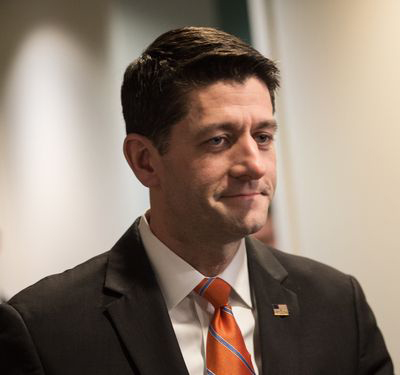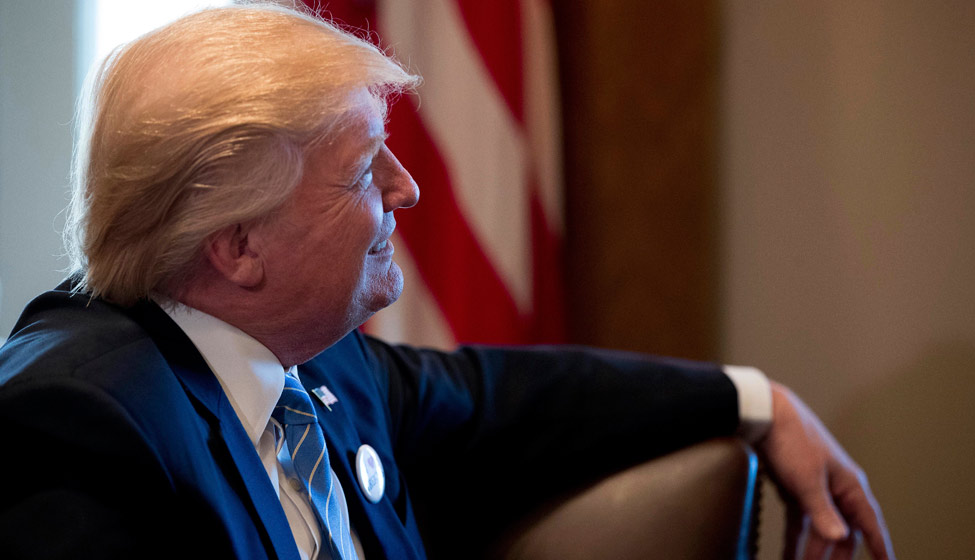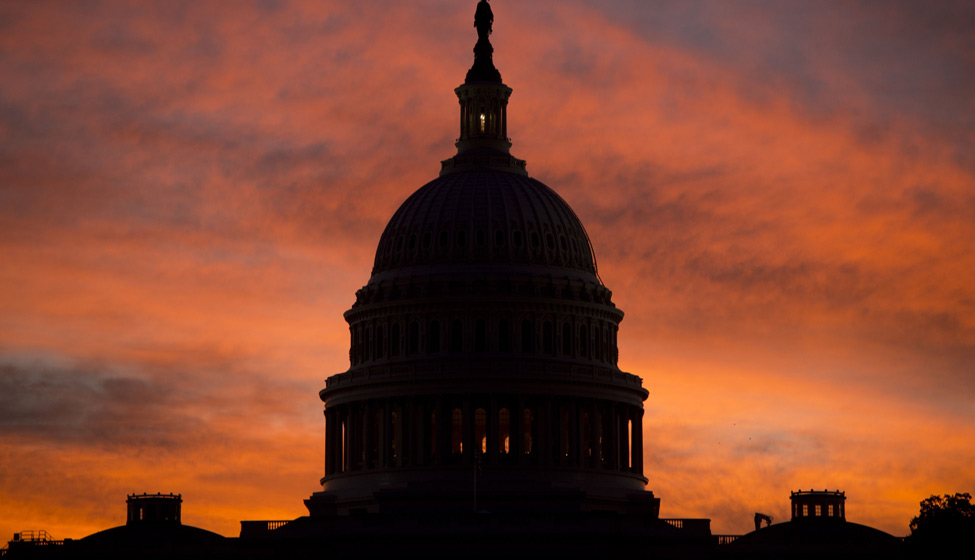Republican leaders have embarked on sweeping tax reforms. One of the proposal is to replace the current corporate tax with a new Destination-Based Cash-Flow Tax (DBCFT) of lower rates. In the destination–based cash flow tax regime, tax will be levied at the place of consumption instead of the place of production. And so, all imports will be taxed and exports will be tax-free.
Make in America
Republican leaders Paul Ryan and Kevin Brady are campaigning for a new tax scheme at the policy conferences of the Grand Old Party. Their intention is to reduce the burden of corporate tax on the US companies and thus promote American exports and job growth. Currently, corporate tax is assessed at a rate of 35 per cent of global profits of a company.
 US House Speaker Paul Ryan is spearheading Republican tax reforms. Photo: AFP
US House Speaker Paul Ryan is spearheading Republican tax reforms. Photo: AFP
The new tax system was first proposed in the Republican Party’s 2016 policy paper ‘A better way—our vision for a confident America.' As per the scheme called Border Adjusted Tax (BAT) or destination tax, a product is taxed where it is consumed and not produced. The tax is border-adjustable—taxing imports and exempting exports, based on consumption.
How it works
DBCFT works on the principle of value added tax (VAT). The general principle of VAT is to assess tax on the basis of the value of consumption. Here a modified VAT will be in place of the current corporate income tax. There is also a provision to deduct wages.
In the newly proposed border tax regime, corporate tax will give way to a tax based on domestic income from selling goods and services. The proposed tax rates are 20 per cent for corporations and 25 per cent for unincorporated businesses.
Domestic consumption comes under the destination-based, border-adjustable international corporate consumption tax scheme. Tax is not levied on goods and services that are domestically produced and consumed abroad. However, any imported component used in making the product will be taxed.
For example, a factory in Oregon manufactures American fashion dolls with all components made in the USA. If the doll is exported to, say, Germany, there is no American tax on it. If the same is sold in the US market, it will attract a tax rate of 20 per cent. If the doll uses an imported component, the import tax for that component will be applicable in the value of the doll.
Since goods are taxed at the place of consumption, export earnings will be tax-free. This will make American products more competitive in the foreign markets.
This shift in taxation policy will effectively lower the corporate tax rate from 35 per cent to 20 per cent. It adjusts or removes export earnings from a company’s taxable revenue, thus motivating US multinationals to maximise their export earnings. This huge tax advantage for corporates would end up as a massive loss for the US treasury. This loss owing to tax-free exports would be compensated or adjusted by BAT levied on goods consumed domestically.
The proponents of tax scheme claim that imposing a 20 per cent border tax would strengthen US dollar by about 25 per cent. But financial experts are uncertain how the currency exchange rates would respond to border-adjustable tax reform.
The current corporate tax based on profits encourages importing of goods as their value can be deducted as expenses. At the same time, profit-based corporate taxation motivates companies to shift their business offices abroad and keep global profits outside to escape from the US taxman.
Intra-firm transactions help American corporates to get around high corporate tax. US multinationals assign maximum value to their companies abroad and the least share to their American firm.
US multinationals can evade taxman so long as they park their profits offshore. However, these profits are taxed when they are repatriated to the US. US corporates have kept $2.6 trillion abroad. Now on repatriation, the accumulated profits will be charged a reduced rate. In the BAT scheme, American companies can bring their profits to the US without the fear of being taxed.
Congress members are serious about tax code revision, as the US trade deficit is growing—it recorded $502 billion in 2016. America imported goods and services worth $2.712 trillion while exporting $2.209 trillion. But, for this period, the US exported more services than it imported—exported service valued $750 billion while importing $502 billion.
Big dollar
BAT will radically change the tax structure for the corporates and the government. The impact will be felt in the manufacturing sector. Companies will invest in America as it is no longer profitable to import finished goods or components.
Dollar will appreciate—how much is disputable—owing to taxing imports and boosting exports. Stronger dollar will make imported items cheaper for American consumers, and American products dearer for foreigners. Though import tax would push up prices for US consumers, appreciating dollar would cancel out its impact, sparing Americans of the chance of an inflation. With jobs rising, it would be within their means to afford imported goods.
However, if dollar is not strengthening sharply and swiftly enough, imports will become unaffordable for many US consumers, leading to inflation.
Win-win for all
BAT will bring more jobs for Americans and is projected to reduce US trade deficit.
Corporate houses can relocate their headquarters to America from tax havens like Ireland. They would focus on export market and repatriate profit to the US without hesitation. The scheme will make investment in the United States an attractive option.
The proponents of the scheme say it is win-win for all. However, there is a fear that countries, having a trade surplus with the United States will retaliate. Germany and Mexico have said they would respond to the US move with severe protective measures. However, the backers of the scheme say that trade partners are most unlikely to retaliate and risk their surplus advantage.
 President Trump said border tax would lead to more jobs in the United States. Trump at the Cabinet Room of the White House in Washington. Photo: AP
President Trump said border tax would lead to more jobs in the United States. Trump at the Cabinet Room of the White House in Washington. Photo: AP
Trump for jobs
What President Trump wants is jobs back in the USA. He meant it when he tweeted “JOBS, JOBS, JOBS!”. He thinks the current corporate tax structure of 35 per cent is prohibitive for business to invest in America. However, he is not yet very keen about the border tax. But of late, he is convinced that BAT would help improve jobs. He told Reuters, “It could lead to a lot more jobs in the United States.”
Trump during the election campaign had threatened to impose tax on goods imported from Mexico and China. But recently, he seems to have backed out of his protectionist rhetoric. Nevertheless, tax reforms being an election promise of Trump, are still a priority for him. GOP leaders who are working towards passing tax reforms in July are hopeful of bringing the president on board. But passing them this year, observers say, would be an arduous task.
Bouquets and brickbats
Retail business is troubled. BAT is opposed by retail majors like WalMart and other import-centric businesses. National Retail Federation said it expected prices to jump by 15 per cent.
Federal Reserve economists have also raised their concerns. Many economists believe that dollar would not appreciate 20 per cent on border tax as claimed by pro-BAT lobby. And even if it rises, it would not be fast enough, setting an inflationary trend in the US economy.
A few American companies, cheering border adjustment tax, have launched TV advertisements this week. The American Made Coalition, a body of top exporters like Boeing, Caterpillar and Pfizer are urging Americans to support the reforms.
Free trade
Trump had emphatically said he would renegotiate with the World Trade Organisation (WTO) to protect American interests.
Countries with export-focus are depicting BAT reforms as protectionist policies that would violate WTO terms. They say, the US, being a WTO member, has to abide by its terms and conditions.
But the defenders of the proposed tax say that the new tax is neither a subsidy nor a tariff, which are illegal under the provisions of WTO. They are confident that WTO is unequipped to deal with destination tax regime.




